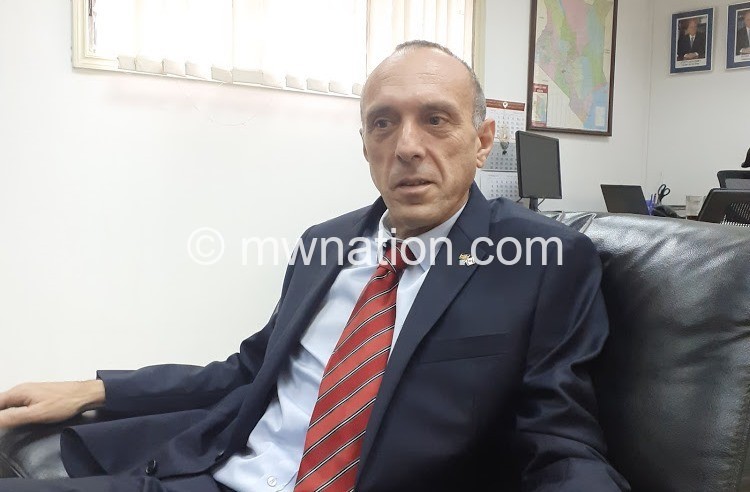President firm on Jerusalem
It became clear yesterday that nothing will change President Lazarus Chakwera’s decision to establish a diplomatic mission in Jerusalem, Israel, despite that it violates a United Nations (UN) Security Council resolution.
Malawi will become the only African country to recognise Jerusalem as Israel’s capital following in the footsteps of Guatemala in South America and the United States of America (USA) which recognised it in December 2017.

The UN Security Council resolution does not recognise the city as Israel’s capital due to a long standing Israeli-Palestinian conflict. The African Union (AU) has also previously passed several anti-Israel resolutions.
Taking questions in Parliament during his second Question Time to the President, Chakwera said Malawi is a sovereign State and free to make independent decisions on who to relate with.
He was responding to a question from Zomba Chisi member of Parliament (MP) Mark Botomani (Democratic Progressive Party-DPP) who sought to know the motivation behind the Tonse Alliance administration’s focus on Malawi’s diplomatic relations with Israel.
The President said his decision was not new as Malawi, during the one-party regime of founding president Hastings Kamuzu Banda, also had diplomatic ties with Israel until 1994 when Israel’s residential base moved from Lilongwe to Harare.
He said: “Our bid to reenergising existing relationship with Israel and establish residential diplomatic missions should not be regarded as something new in our foreign policy.
“Israel is a great nation and a leader in many fields of human endeavours, including science and technology, agriculture, education and human development. These are attributes which Malawi wants to learn from and improve Malawi’s prospects as a nation.
“Our commitment to improve the relationship is therefore grounded in our own national interests.”
On whether his government consulted the UN, Chakwera said he was aware about the UN resolution, but told the House that relations between member States are governed by statutes and that decisions members make are independent.
But the President’s initial response attracted supplementary questions with Mulanje South West MP George Chaponda (DPP), a former minister of Foreign Affairs in the DPP administration, drawing comparisons between the new policy and Malawi’s previous support for apartheid South Africa.
Said the MP: “My worry is that we live in a global village and what we do impacts on us. During the one-party State, the late Dr Hastings Kamuzu Banda took an independent position of honeymooning with apartheid South Africa and decided not to follow what the Front Line States were pursuing.
“As a former minister of Foreign Affairs, when we go to forums such as Sadc and so on, Malawi is treated like a pariah. By taking the position which you have said, by siding with Israel, recognising Jerusalem, are you taking into account the facts that this nation could be isolated by others?”
However, Chakwera dismissed Chaponda’s view, saying his recent State visits to Mozambique, Tanzania, Zimbabwe and Zambia demonstrated that the country is enjoying better relations and has a good standing within the region.
During the question time, Nkhotakota North East MP Martha Lunji Chanjo (DPP) also asked the President to explain the rationale behind his administration’s decision to hire retired public officers as it appeared to counter the Tonse Alliance promise of creating one million jobs for the youth.
In response, Chakwera said his administration “only re-engaged three retirees to tap from their knowledge”.
The President said the arrangement was unlike what was happening in previous administrations when individuals were brought into the civil service on political grounds. He said the re-engagement of the three is meant to instil discipline in the civil service and cannot demoralise anyone or deny youth jobs as the MP claimed.
Taking another series of five questions, including one on fears of food shortages, the President ordered Admarc to open markets and make maize available for purchase to avoid hunger.
He also told Parliament that he directed the release of 30 000 metric tons from the Strategic Grain Reserves.





